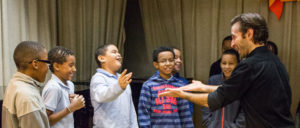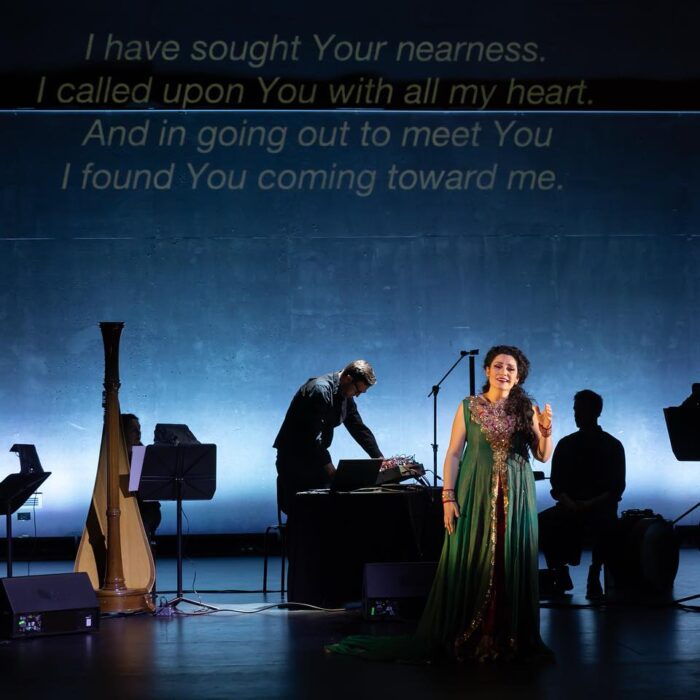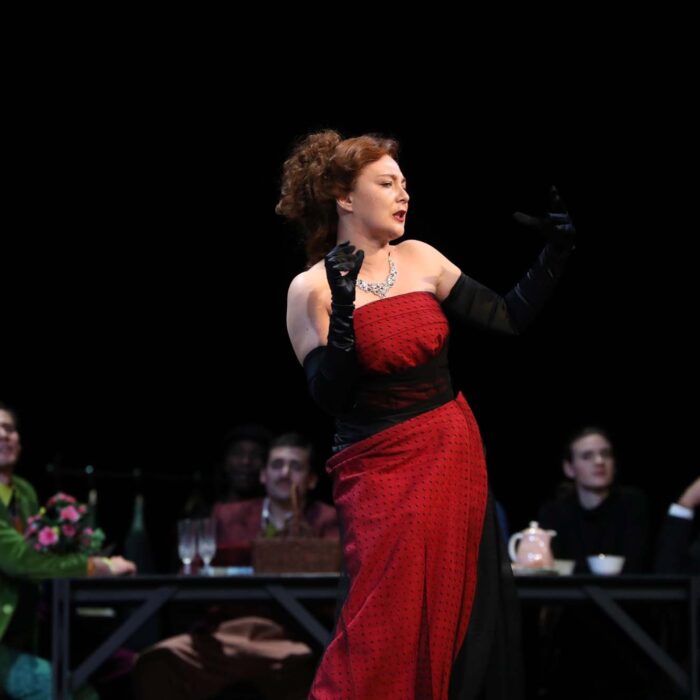
How Young People Can Get Interested in Opera
By Alkis Karmpaliotis(Image Source: Met OPera Official Website)
OperaWire is proud to partner with Appreciate Opera, a website founded by Alkis Karmpaliotis in which he highlights his passion for opera. Karmpaliotis, an OperaWire contributing author, will focus on his passion for opera and how to share it with newer and younger audiences.
Getting young people to become opera-goers is one of the significant challenges for opera lovers and houses. It is also one of our most important priorities. There are multiple ways by which opera houses can attract young audiences, and there are even more methods by which young people themselves can take initiative.
Before we get to the hows, we have to deal with the whys.
Why Opera?
Why should children even make an effort to learn about opera in the first place? For me, a teenager, opera is more than just a few melodies, catchy tunes, and exciting moments — all of which one can find in any modern cinema.
Opera is an experience.
It is a journey through which one’s deepest emotions reveal themselves. With opera, we can immerse ourselves in the drama, crying and laughing and gasping in sweat along the way, more than we can with any other form of art. There are operas that make us cry — for how could a cathartic combination of theater, dance, and music not bring fire to one’s heart? — and others that make us smile. Few, if any, art forms can bring such a wide range of feelings to our bodies.
Making an effort to listen to opera goes beyond pleasing current opera fans like me; by hearing just a whisper from an excerpt from an opera, we dive into cultural history. We are taken centuries back, and we hear the voices of people who lived in the ages of Verdi and Puccini. We learn about life in 18th century Rome and Vienna more than we ever could with a textbook. There is more than a societal benefit to people appreciating opera; there is a personal one.
So why learn about opera? It is education; it is passion; it is enlightenment.
Let’s Get Some Things Straight
Now, we must begin by dismissing a few prejudices that oftentimes keep children from exploring the world of opera.
First is the idea that opera exists only for old people and the “elite.”
This could not be further from the truth. While opera tickets themselves are expensive, opera is currently more accessible than ever, and more people around the world are listening than ever before. The Metropolitan Opera, joining forces with artists in an attempt to spread opera around the world (as well as raise funds), recently organized a live virtual At-Home Gala in which singers and pianists from around the world participated, from Jonas Kaufmann in Bavaria to Renée Fleming in Virginia. This free event, informal yet shockingly moving, also featured a powerful performance of “Va Pensiero” sung by the Met Chorus and conducted by Yannick Nézet-Séguin. It is events like these through which opera grows, as more people realize just how fun and exciting it can be.
Second, is the idea that opera is boring — that all an opera is is an hours-long, seemingly endless perpetuity of overweight people screeching. Again, this is false; some of the most beautiful pieces of music ever composed are in operas, too many of which, it seems, so many humans will never get to enjoy.
So…
So what can opera houses and other opera-related entities do to inspire the next generation of opera-goers — and why should they?
The reasons for which opera houses must take action are twofold.
First, we must strive to raise new opera-lovers, for if we don’t, there will be none, and thus, as it did on the gods in “Götterdämmerung,” twilight will fall upon our great art.
Second, today’s children are tomorrow’s ticket-purchasers, and opera houses largely understand this — other than simply wanting to protect an art form, these businesses want to maintain business!
What can they do?
Conductor and violinist Antonello Manacorda, in a recent interview for Appreciate Opera, said that for the premiere of a production of “Die Zauberflöte” that he conducted in Amsterdam, tickets were sold only to people under 20, and the performance sold out within two hours. Manacorda noted, “it was the best audience I ever had!”
Another example of opera houses taking charge is the Metropolitan Opera Education initiative, which is dedicated to students’ operatic education. It does everything from writing graphic-novel-style synopses of operas for children to supporting the landmark HD Live in Schools program, which brings live opera broadcasts to schools across the United States.
Moreover, every year, around Christmas, the Met stages a child-friendly, English-language, shortened production of a famous opera. Past selections have included “The Magic Flute,” “Hansel and Gretel,” and “The Barber of Seville.”
Additionally, the Metropolitan Opera is currently running a Global [online] Summer Camp to keep kids busy during the difficult period that is the COVID-19 pandemic. Every week, campers learn about a different opera, taught by skilled educators as well as by some of the best artists in the world, including Christine Goerke and Javier Camarena. This camp could very well become a yearly tradition. Hopefully, it does.
And let’s be clear. They are NOT alone in this endeavor. Several other companies have engaged with online summer camps throughout the COVID-19 pandemic including Sarasota Opera, the Bel Canto Boot Camp, the LA Opera, the Dallas Opera, and the Houston Grand Opera.
These are all fantastic examples of what opera houses are doing to help “open the house doors,” so to speak, for young people. There are many more things that opera houses (and artists) are doing, and even more things that they should be doing. Most of the responsibility, though, falls on the children themselves!
What Young People Can Do
Many ask me how I came to adore the opera. It all starts with determination, I reply. Without truly wanting to, no one can truly commit. If forced, one will not enjoy the process of learning about opera. The first step is understanding that listening to opera should not be a task, but a pleasure.
In an interview for Appreciate Opera, countertenor Anthony Roth Costanzo, when asked about how to get more young people interested in opera, replied, “[T]oo often, I think, the explaining of everything, the ‘let me give you the translation,’ ‘let me tell you the story,’ does not interest the kids. The kids are interested in some instant connection … and in my experience, the easiest one is emotion.”
Interestingly, according to Costanzo, the 2019 production of Phillip Glass’s “Akhnaten,” most of which did not have supertitles, in which Costanzo starred, was loved by kids. Costanzo explained, “[the kids] were given free rein to see the images, to interpret the story the way they wanted, and to connect to the sound of the music and the emotion through something that was rather abstract.”
Taking Mr. Costanzo’s words under advisement, parents and children can work together to ensure that children feel that emotional connection of which he speaks. These children, thus, can embark on the journey of becoming opera aficionados.
As an opera-loving adolescent myself, I constantly personally urge other children to try to learn about not just opera, but all classical music. Because of the societal prejudices I mentioned, many children, through no fault of their own, refuse to make that effort. Once these foolish preconceptions are set aside, children can truly commit to learning about this great art.
My personal advice?
Trust me; it’s worth it.
Categories
Special Features

